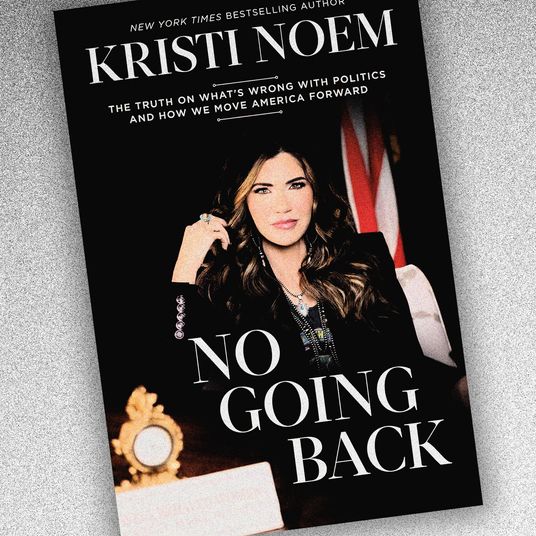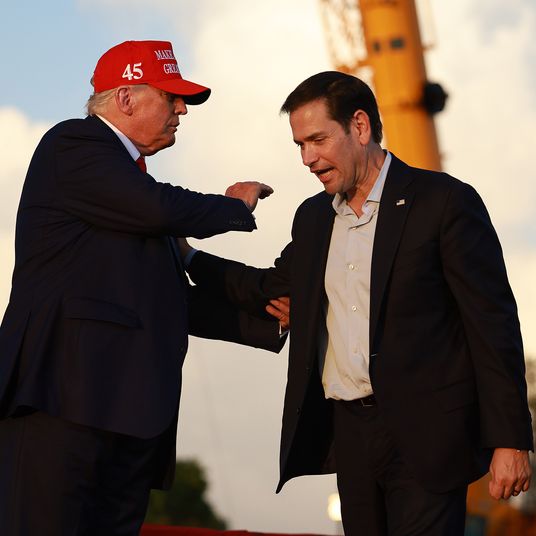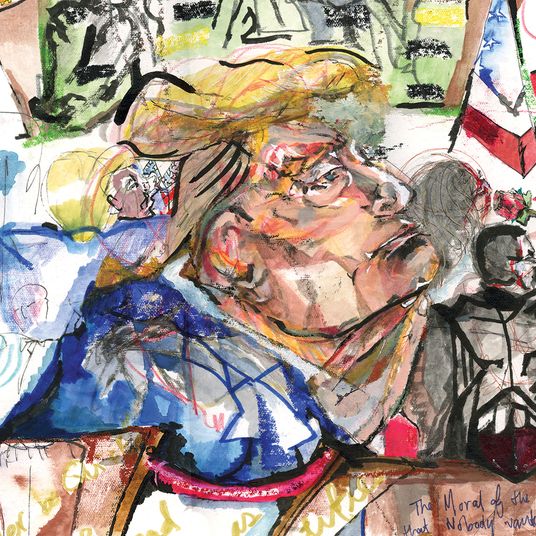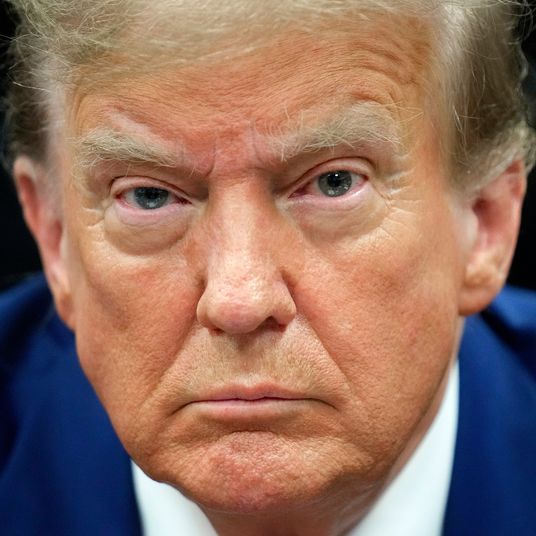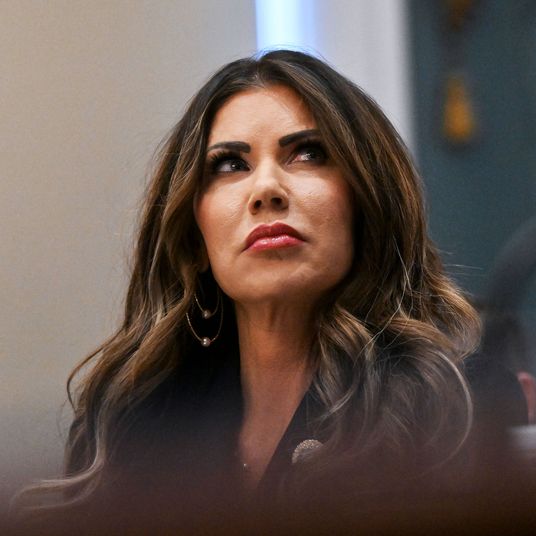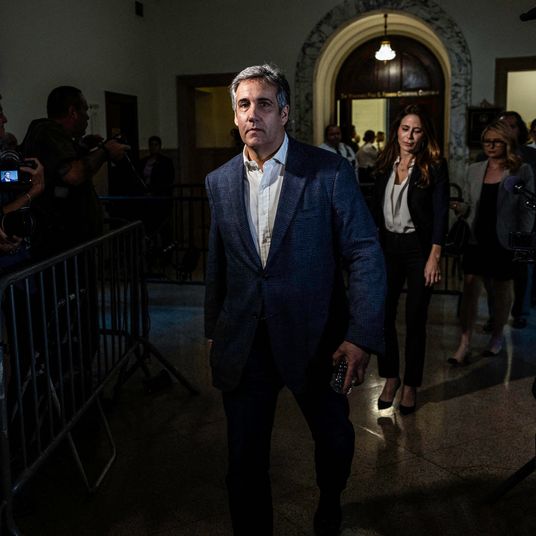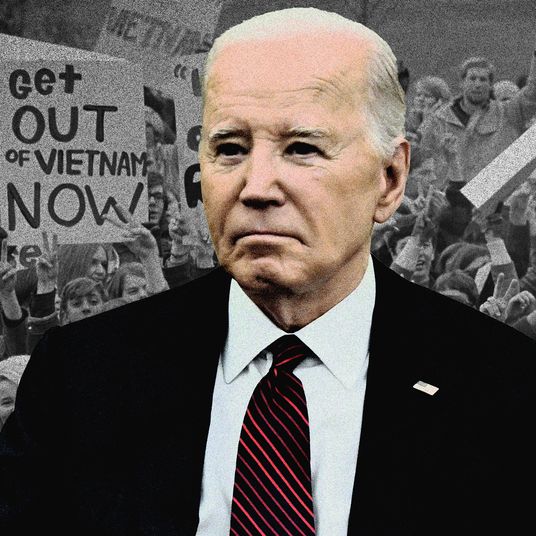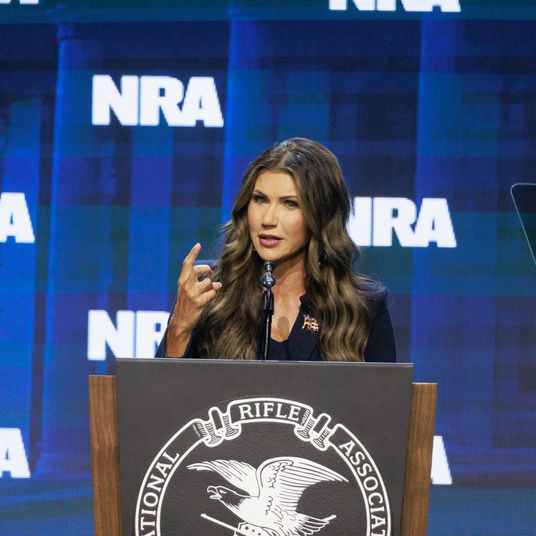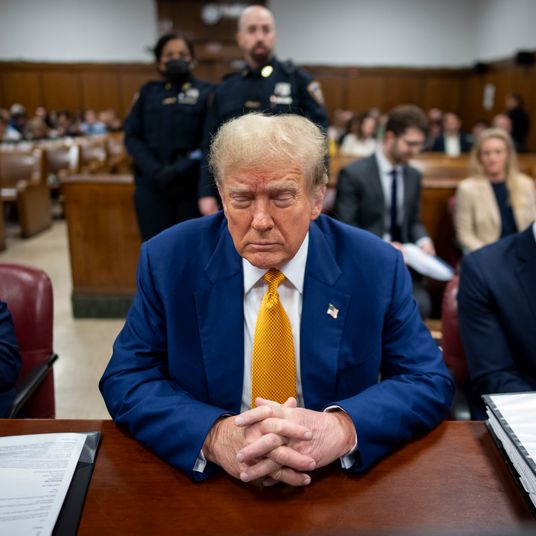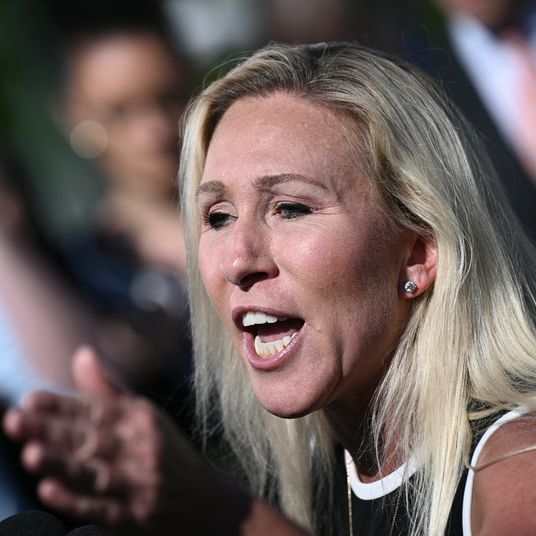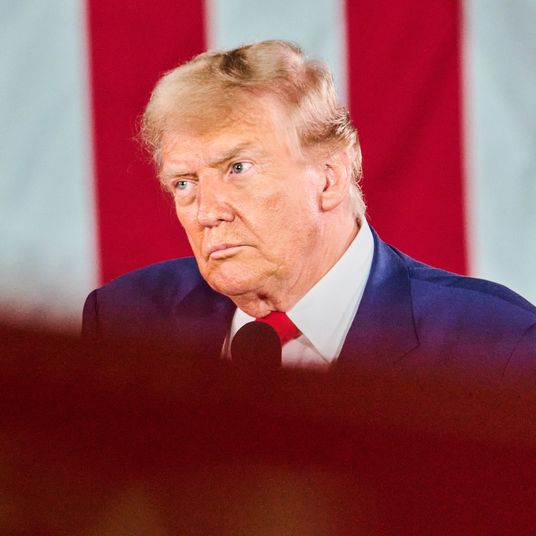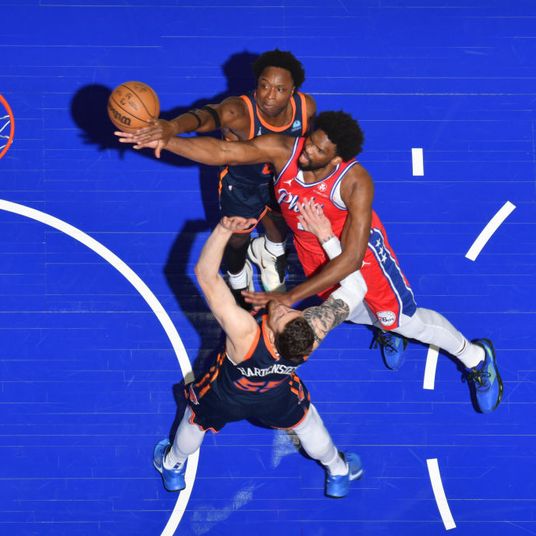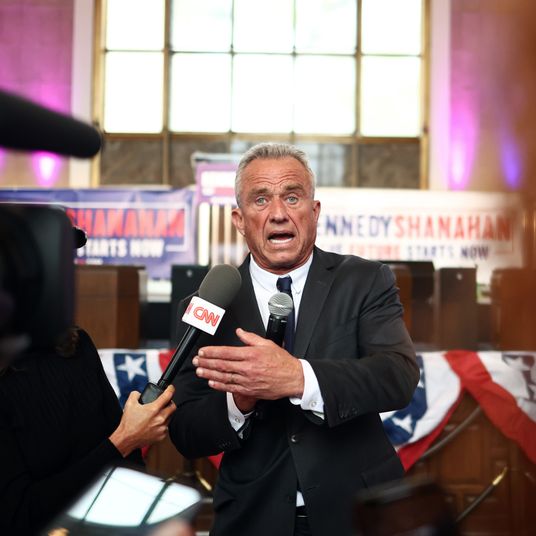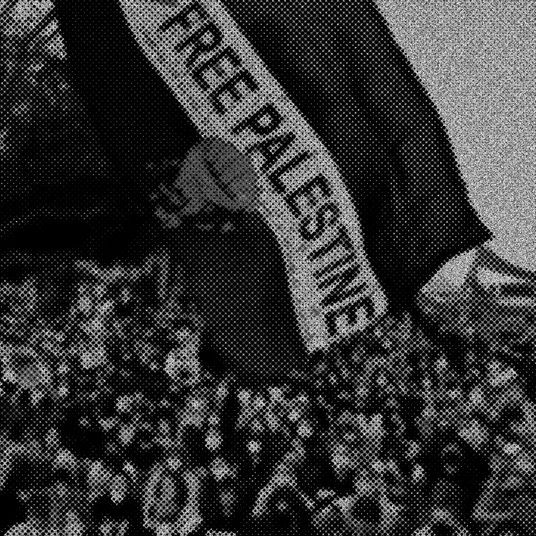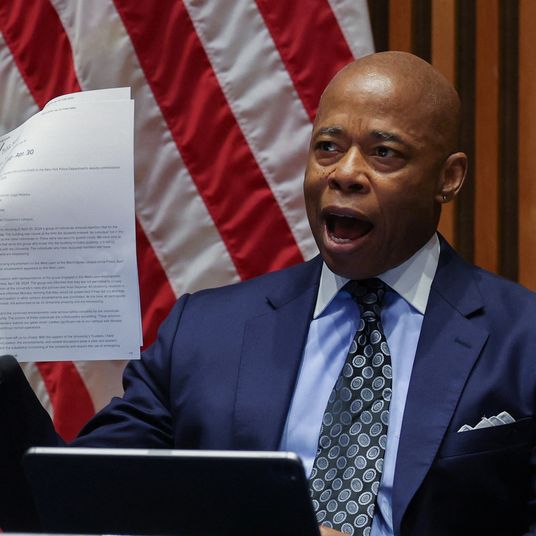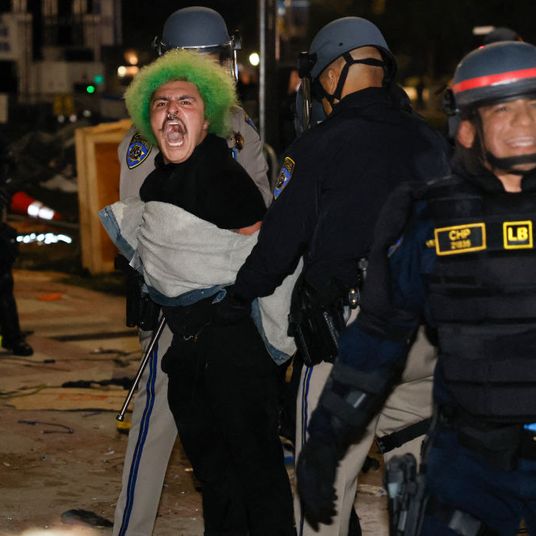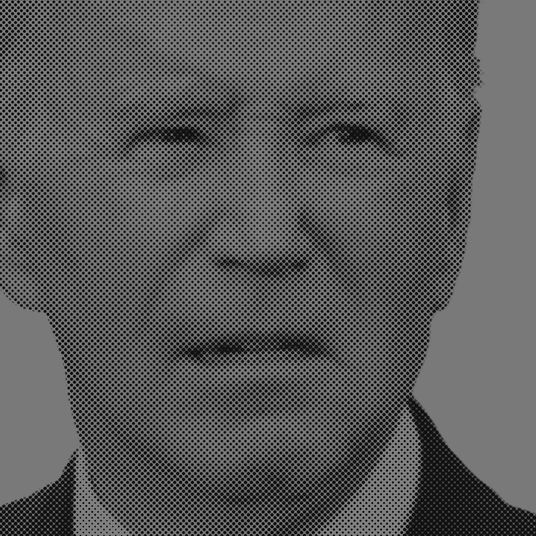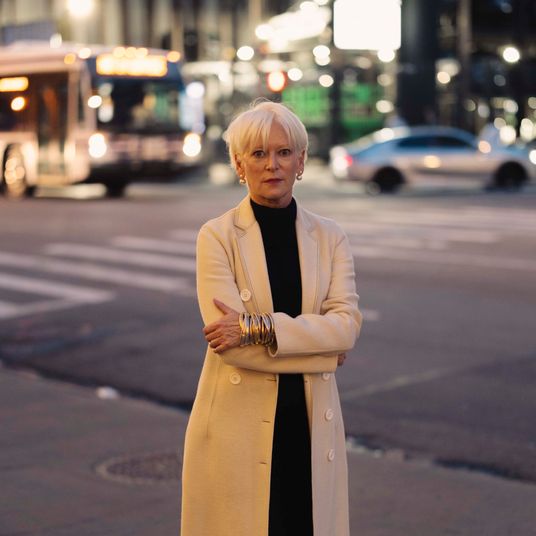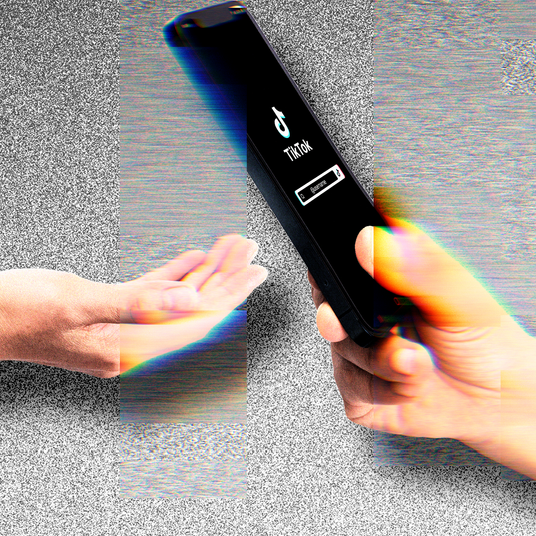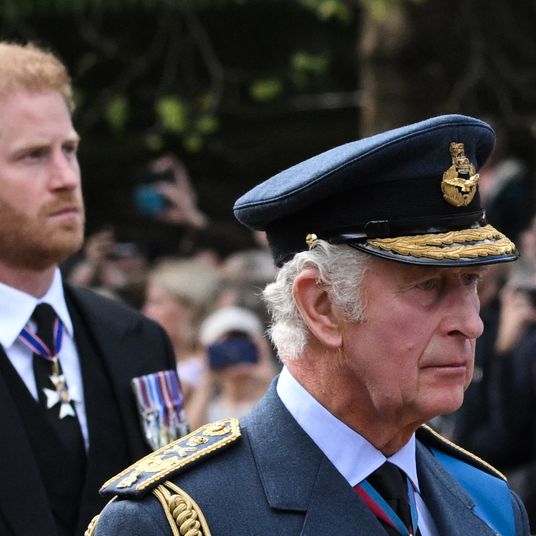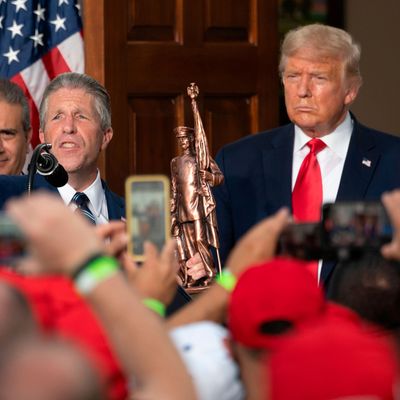
New York City’s Police Benevolent Association, which advertises itself as “the largest municipal police union in the world,” endorsed President Trump on Friday, marking the first time the organization has made a presidential endorsement in at least 36 years, according to union head Patrick J. Lynch. “That’s how important this is,” Lynch said during an event at Trump’s golf club in Bedminster, New Jersey, which the president attended. “You’ve earned this.”
But beyond formalizing a political alliance, this announcement confirmed what a growing share of the public has come to realize about America’s police: That their most treasured entitlement is their unaccountability. The PBA’s support for Trump is not only an endorsement of his unpopular social-control platform, which celebrates brutal policing. It’s their latest rebuke of the notion that the ideal version of law enforcement requires partnership between the police and the public.
Americans have spoken and are emphatic: Policing needs fundamental change. Since George Floyd’s killing in Minneapolis, polling has shown a dramatic shift in how most people view law enforcement. According to Gallup, confidence in the institution of policing is the lowest it’s been since 1993, the year the pollster began collecting data on the subject, and — at 48 percent — has failed to amass majority support for the first time on record. Even relative to five years ago, majorities of Americans support a significant tightening of officer accountability measures: 67 percent strongly favor “establishing clear standards for use of force”; 64 percent strongly favor “requiring officers to report peer misconduct”; and 63 percent strongly favor “prosecuting officers who use excessive force,” according to a June poll from the Associated Press and NORC Center for Public Affairs Research. (When accounting for Americans who “somewhat favor” these changes, support for all three jumps to 85 percent or higher.) A July survey of registered voters, conducted by the Program for Public Consultation at the University of Maryland’s School of Public Policy, found that 63 percent favored amending “qualified immunity” so that officers are no longer shielded from personal liability for violating people’s constitutional rights unless they broke “clearly established” law.
The obvious message is that most people don’t want their police to operate with impunity, and more generally, want them to be responsive to public concerns about their behavior. But police unions have been among the greatest barriers to achieving this goal. Across the country, one of the primary functions of these organizations is to negotiate labor contracts that govern how — or whether — their members are held to account for misconduct. Provisions of these agreements often include the destruction of unflattering records within a matter of months; guaranteed pay during suspensions; and the ability to review evidence before making statements about incidents where they’ve been accused of crimes. A mix of these provisions and generous immunity laws functionally place the police outside the range of consequences. Police unions’ leverage for negotiating these deals stems in part from their ability to organize political backlash. At the mildest slight or challenge to their primacy, they are known to mount fearsome opposition to local officials, protesting and characterizing transgressors as “soft” on crime. Their wrath is so dreaded — and their endorsements so coveted — that candidates and officials from both major parties treat them with almost universal deference.
The PBA in particular has never been shy about wielding this power. The New Yorker describes their response to Mayor David Dinkins’s efforts to install a civilian review board in 1992:
[The] P.B.A. staged a ferocious protest at City Hall, with ten thousand off-duty officers, virtually all white and many carrying guns and drinking alcohol. Demonstrators waved racist placards — “Dump the Washroom Attendant” — attacked reporters and bystanders, vandalized City Council members’ cars, stormed City Hall, and overflowed onto the Brooklyn Bridge, where they stopped traffic and jumped on occupied cars …
A city councilwoman, Una Clarke, who is Black, was prevented from crossing Broadway “by a beer-drinking, off-duty police officer who said to his sidekick, ‘This n- - - - says she’s a member of the City Council.’”
Nor have politicians usually suffered for indulging unions’ often outrageous behavior. Rudy Giuliani, then a former prosecutor, “stood on a car [during the 1992 PBA protests], leading obscene chants through a bullhorn.” He defeated Dinkins in the next year’s mayoral election. Bill de Blasio has more recently provoked their ire, starting when he campaigned for mayor as a police reformer — a label that, for all the hostility it earned him, his subsequent conduct did not merit. In 2014, when a gunman murdered officers Wenjian Liu and Rafael Ramos, PBA president Lynch publicly blamed the mayor. “There’s blood on many hands tonight,” Lynch said in a statement. “That blood on the hands starts at the steps of City Hall in the office of the mayor.” When a gunman shot several NYPD officers last year in the Bronx, de Blasio expressed his condolences. The Sergeants Benevolent Association tweeted in response, “Mayor DeBlasio, the members of the NYPD are declaring war on you! We do not respect you, DO NOT visit us in hospitals.” Now, officers often turn their backs on de Blasio when he attends their slain comrades’ funerals. The mayor has since made entreaties to them — like rationalizing their brutalization of protesters this summer — but to little avail.
This hostile attitude toward the mere suggestion of accountability is not limited to New York’s police unions. On June 8, a crowd of Philadelphia officers gathered outside of the city’s Fraternal Order of Police Lodge 5 to greet Staff Inspector Joseph Bologna, who was facing aggravated assault charges for allegedly beating a student protester with a baton. His fellow police gave him a round of applause. On June 17, Fulton County district attorney Paul Howard charged two Atlanta police officers in the killing of Rayshard Brooks. A police union spokesman later confirmed that officers had organized a coordinated “sick out” later that evening — calling out ill and declining to report for duty in protest.
Any survey of how these unions typically respond to the public holding the police to account will show a pattern of equivalent behavior. Broadly speaking, their default stance is that public cooperation is to be enforced, rather than earned — and that instead of being obligated to adjust when their work proves wanting, they are owed unquestioning deference, to be extracted through assault and murder if ever and whenever they see fit. The notion that they might owe consideration to even a dissatisfied majority is foreign. This is one of their clearest analogs to Trumpism — even more so than their shared affinity for prejudiced application of the law, targeting vulnerable populations and political opponents.
President Trump exists solely by the mandate of a revanchist minority. He holds power and hopes to recapture it in November, not through popular assent, but the manufactured primacy of an outnumbered but influential faction that supports him. And he offers the same consideration to his loyalists — protection from popular will in the interest of ongoing self-empowerment and unaccountability. As police unions find their interests increasingly at odds with those of the broader public, this approach will prove all the more appealing to them as well — and facilitate their support for the politicians who most encourage it. The PBA’s endorsement of the president is not just notable for being rare, but for its affirmation of minority rule, and its suggestion that public safety in the U.S. is best operationalized as a protection racket. As long as police unions maintain their vise grip on the levers of power, Americans can expect more of the same.






